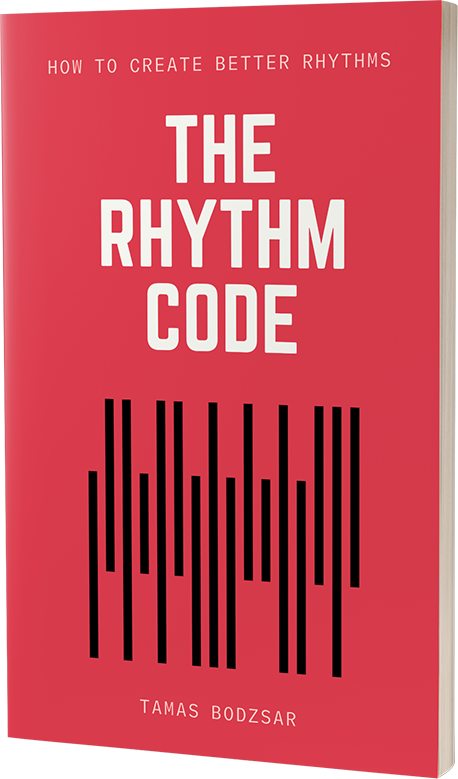
Every songwriter gets to a point where it seems like all their songs just sound the same. This is a common problem, but there are many different ways to get through this plateau. Keep in mind that if you develop a unique “sound” as a songwriter, your songs will do sound the same in a certain way. And this is not a bad thing. Listen to any highly successful songwriters, you will realize that all their songs are somewhat recognizable. But at the same time, some songwriters publish more varying songs than others. In this article, I tell you a few ways you can vary up your songs if you feel like they sound very similar.
Discover new music
The number one reason you write songs that are too similar is that you probably only listen to the same songs over and over again. Probably even the very same artists. We all have favorite artists and we tend to listen to their songs a lot, which is a good thing. We can learn a lot from those songs. But if we only listen to the songs of that one or two of our favorite artists, then our music will sound very much like those songs.
So you need to listen to other artists, especially from other genres. If you are a rock music enthusiast, then listen to jazz songs. If you only listen to pop artists, then you should listen to old-school songs that are richer in harmony, instrumentation, or arrangement. In fact, the most unique sounding artists are using elements from different genres and music styles. Listen to the songs of Red Hot Chili Peppers. They mix elements of rock and funk. Their bass lines have a very groovy rhythm.
Change the tempo
Since we are working with only a few notes in a song, sometimes small changes can make a huge difference. Changing the tempo of your song may sound simple, but it can make a huge difference. If you change the tempo, the song will have a different energy level, you will probably use different rhythms and arrangements. A faster tempo may result in a more rhythmical groove or even a more danceable song. Melodies can be different in faster tempos. At faster tempos, you may want to use more static melodies with fewer leaps in them. On the other hand, if you write slog songs, your melodies can be more emotional with more leaps in them.
Instrumentation
Instrumentation is about what instruments or what sounds you use when you arrange your song. Although, there are genres that are very instrument-specific. For example, you cannot write salsa music without using congas, piano, and horns. On the other hand, using an instrument that is unusual for your genre can make your music sound very unique. How would your song sound if you would add a banjo, a cello, or an accordion sound to it? These are instruments that are not used by many songwriters. Sometimes just adding extra layers of instruments can make the difference. These extra layers can be background vocals, strings, or a horn section. It’s also worth mentioning that you can actually steal the instrumentation of any song. Instrumentations cannot be copyrighted.
Arrangement
If you vary up the tempo, you can use a different kind of rhythm in your arrangement. If you write a song at a faster tempo, you can create a more rhythmical groove. This involves all the instruments in the rhythm section: the bass, the piano, the guitar, and the drums.
You can also make a change by using different chord voicings. Chord voicings are different ways to arrange a chord. If you use a certain chord, you can arrange it in a very close voicing, or you can spread out the chord tones and arrange the chord in a more open voicing. You can also use shell chords, leaving out the fifth and the root note. These techniques, of course, can be used not only for keyboard or guitar but for horn arrangements too.
Instead of using only triads, you can try using seventh chords, or even extended chords. Seventh chords open up the possibilities. In the songwriting course, I explain the difference between writing a melody for triads or seventh chords.
You can try to reharmonize your chord progression to make it more interesting. There are many ways to reharmonize a chord progression, but sometimes even one or two simple changes can make a big difference. In the online course, I also show how they use chord substitutions in highly successful songs.
Write more ideas
Not many musicians realize that success in songwriting comes from writing hundreds of ideas and choosing the best ones from those. Writing really good songs is not about writing only great ideas. The strength of successful songwriters is the ability to choose the best ideas from dozens or hundreds of ideas.
If you don’t write enough ideas for melodies, those few ideas will probably sound very similar. So you just need to write more and more in order to improve. Writing hundreds of ideas can be hard, and frustrating. But in the end, it will totally be worth it. When you come up with a really great idea, you won’t regret investing your time and effort in all those wrong ideas.
Collaborate
The surest way to vary up your songs is to collaborate with another songwriter. Another songwriter will surely bring something very different into the song. This is what even the most successful songwriters are doing. Most of the highly popular songs you hear are written by four people on average. And you can really hear it when an artist performs a song that is written by someone else. For example, when I heard the song “Love Yourself“, performed by Justin Bieber, I immediately suspected that it’s written by Ed Sheeran – and I was right.
For collaboration, you don’t necessarily need to meet people in person. Today, there are countless ways to connect with them online. If your strength is writing chord progressions and arrangements, you need someone for the toplines. If your strength is the topline, then you may need someone to produce the beats for you.
Learn new songwriting tools
Sometimes people write the same ideas because they don’t have many musical tools to use. If you would only knew three chords, you would always use those three chords to write all your songs. The same applies to songwriting. After analyzing more than 2000 successful songs, I realized that there are many different songwriting techniques behind even the most simple songs.
There are two ways you can learn these songwriting techniques. You can write down the melodies, chord progressions, and rhythm of hundreds of songs – as I did – and analyze them in order to find the most effective tools. Or you can save some time by going through our songwriting course that is a collection of all those songwriting tools.
The secret pattern behind successful songs
Get the eBook for $4.99

